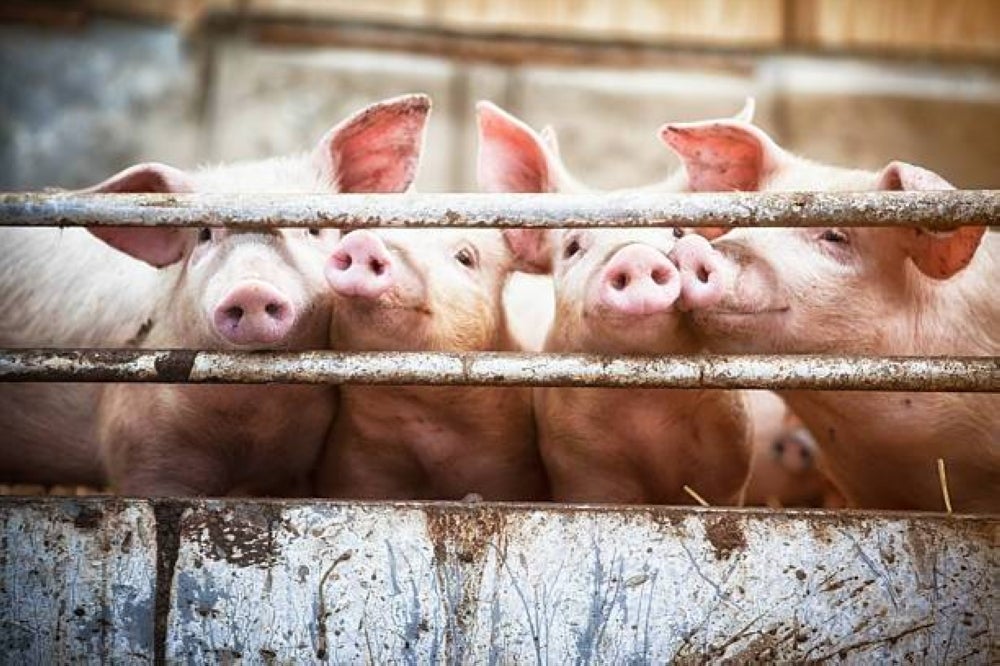Swine flu confirmed in the UK: What you need to know?

SHAH ALAM - Another disease has made its way as the United Kingdom (UK) confirmed a case of a new strain of swine flu.
Swine flu, commonly known as H1N1 influenza, is a respiratory disease caused by the H1N1 influenza A virus.
Swine flu is characterised by symptoms similar to those of regular flu, including fever, cough, sore throat, body aches, and fatigue.
What is swine flu?
Swine flu is a respiratory disease of pigs caused by type A influenza virus that regularly causes influenza outbreaks in pigs, according to health expert Professor Sharifah Ezat from Universiti Kebangsaan Malaysia (UKM).
"Swine flu viruses do not usually infect humans, but rare human infections have occurred.
"Just as there are influenza vaccines for people, there are specific swine influenza vaccines available for pigs. Pigs can be infected by avian influenza and human influenza viruses as well as swine influenza viruses," she told Sinar Daily.
How many types of influenza are there?
Sharifah noted that three main influenza A virus subtypes have been isolated in pigs in the United States: H1N1, H1N2, and H3N2.
She also added that when the flu A virus from pigs is transmitted to humans, it is termed a "variant flu" virus infection.
"When people get variant flu, it's usually after contact with infected pigs or surfaces or environments contaminated with swine flu A virus, such as a swine barn.
"This has happened in different settings, including farming and agricultural fairs," she added.
What is the advice?
To reduce the risk of swine flu transmission, Sharifah advises individuals at higher risk of serious flu complications, including children under five, individuals aged 65 and older, pregnant individuals, and those with certain health conditions, to take specific precautions.
"Wearing a well-fitting mask, such as an N95 respirator or KN95 respirator, is recommended to reduce exposure.
"Regular hand hygiene, including washing hands with soap and water or using alcohol-based hand rubs, is crucial before and after exposure to pigs or swine barns," she said.
She also urged people to avoid close contact with pigs displaying signs of illness.
"Avoid close contact with pigs that look or act ill," she said.
Situation in the UK:
The UK has detected its first human case of H1N2, a swine flu strain that has been reported in 50 people worldwide since 2005.
How many people have been infected?
According to The Guardian, the UK Health Security Agency (UKHSA) has confirmed that one person has been found to have Influenza A(H1N2)v, which is similar to flu viruses circulating in pigs in the UK. The UKHSA has formally notified the World Health Organization (WHO) about the discovery.
How did the person become infected?
It is believed that the case was discovered as part of routine national flu surveillance undertaken by the UKHSA and the Royal College of GPs.
The patient was tested after experiencing respiratory symptoms. The person infected had a mild illness but has now recovered. They were never hospitalised and were not known to have worked with pigs, the Guardian understands.
Is this the same strain as the one that caused a pandemic in 2009?
No. Swine flu is usually caused by three subtypes as mentioned above.
The strain that caused the 2009 pandemic – H1N1 – now circulates in humans seasonally and is different from the viruses circulating in pigs today.
There have been 50 human cases of H1N2 reported globally since 2005, including some in the US.











